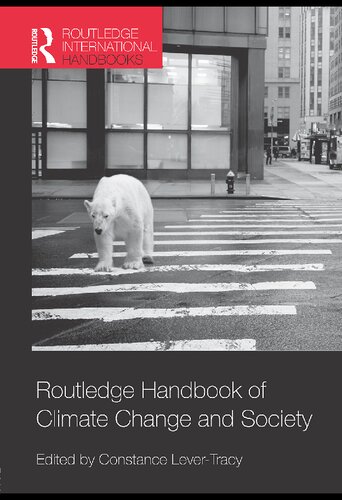

Most ebook files are in PDF format, so you can easily read them using various software such as Foxit Reader or directly on the Google Chrome browser.
Some ebook files are released by publishers in other formats such as .awz, .mobi, .epub, .fb2, etc. You may need to install specific software to read these formats on mobile/PC, such as Calibre.
Please read the tutorial at this link: https://ebookbell.com/faq
We offer FREE conversion to the popular formats you request; however, this may take some time. Therefore, right after payment, please email us, and we will try to provide the service as quickly as possible.
For some exceptional file formats or broken links (if any), please refrain from opening any disputes. Instead, email us first, and we will try to assist within a maximum of 6 hours.
EbookBell Team

0.0
0 reviewsAs the time-scales of natural change accelerate and converge with those of society, Routledge Handbook of Climate Change and Society takes the reader into largely uncharted territory in its exploration of anthropogenic climate change. Current material is used to highlight the global impact of this issue, and the necessity for multidisciplinary and global social science research and teaching to address the problem.
The book is multidisciplinary and worldwide in scope, with contributors spanning specialisms including agro-forestry, economics, environmentalism, ethics, human geography, international relations, law, politics, psychology, sociology and theology. Their global knowledge is reflected in the content of the text, which encompasses chapters on American, European and Chinese policies, case studies of responses to disasters and of the new technological and lifestyle alternatives that are being adopted, and the negotiations leading up to the Copenhagen conference alongside a preface assessing its outcomes. Starting with an initial analysis by a leading climatologist, key issues discussed in the text include recent findings of natural scientists, social causation and vulnerability, media and public recognition or scepticism, and the merits and difficulties of actions seeking to mitigate and adapt.
This accessible volume utilizes a wealth of case studies, explains technical terms and minimises the use of acronyms associated with the subject, making it an essential text for advanced undergraduates, postgraduate students and researchers in the social sciences.